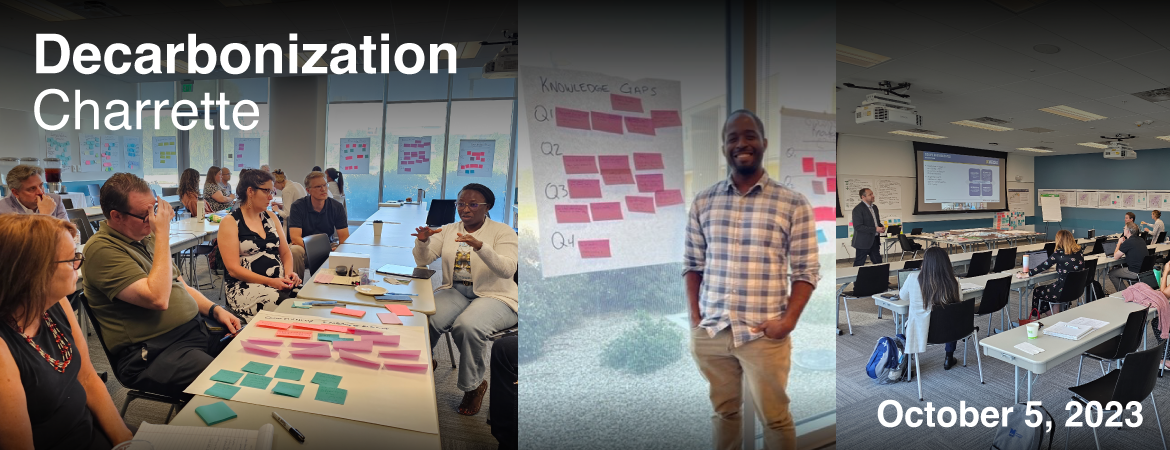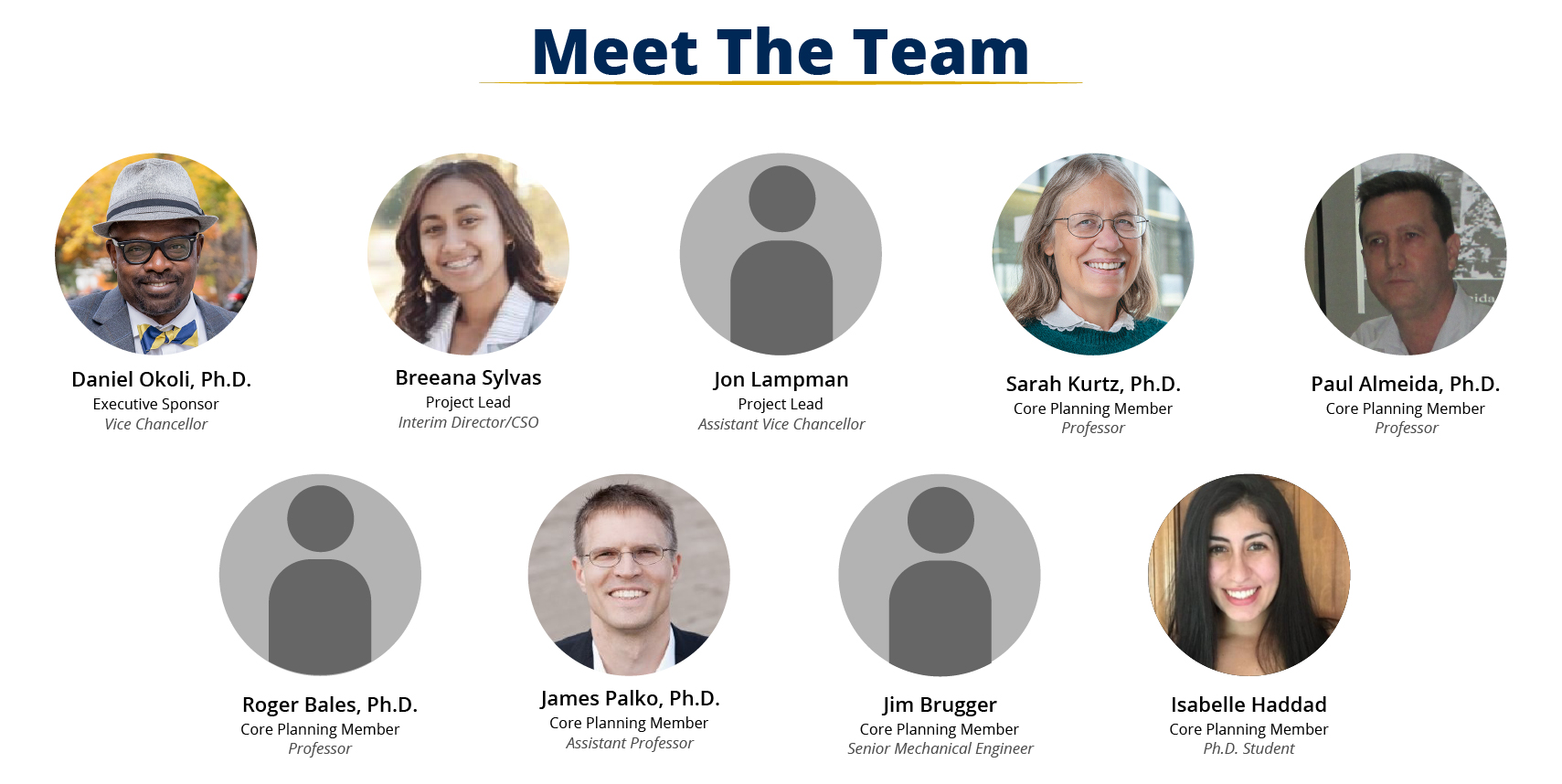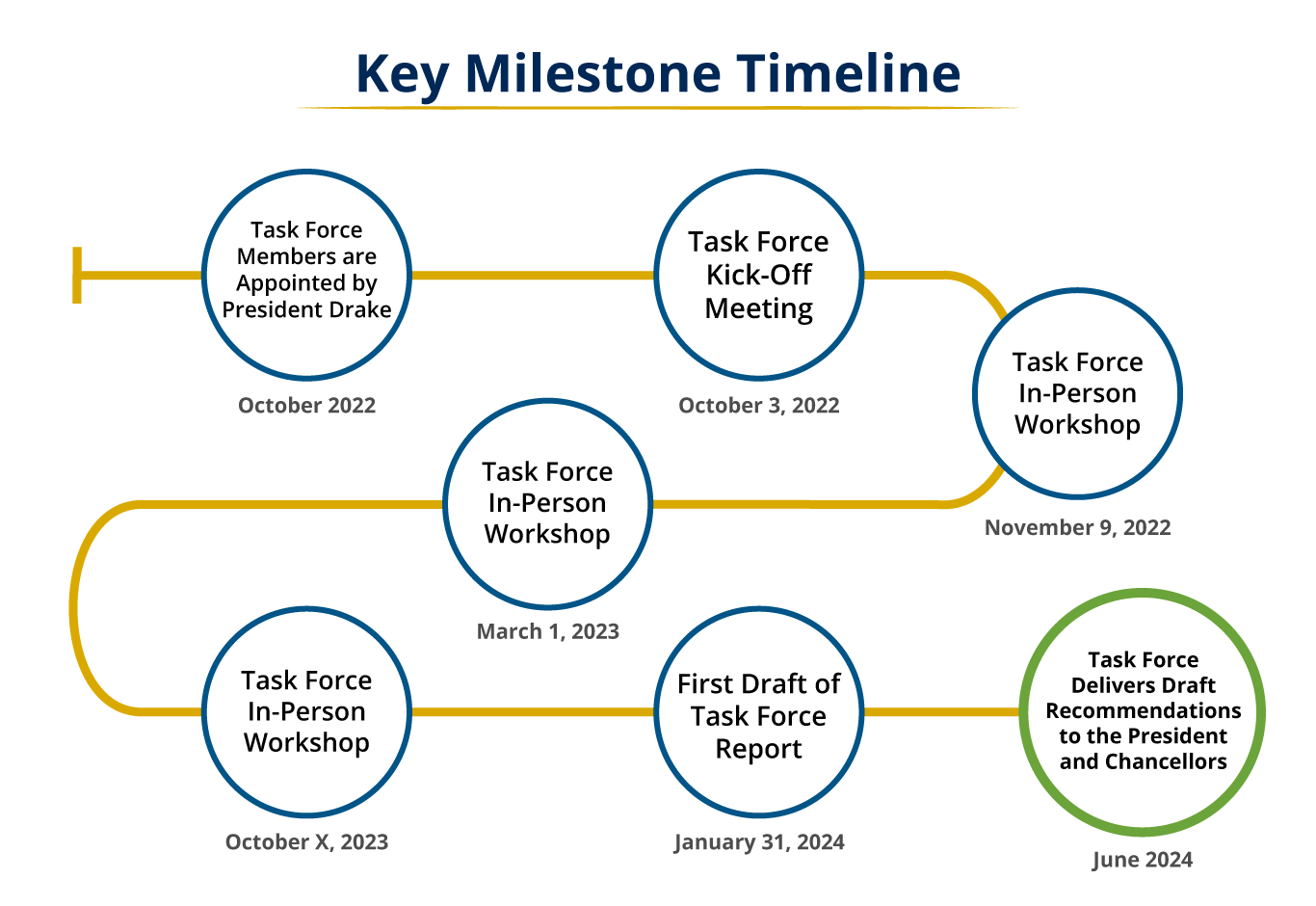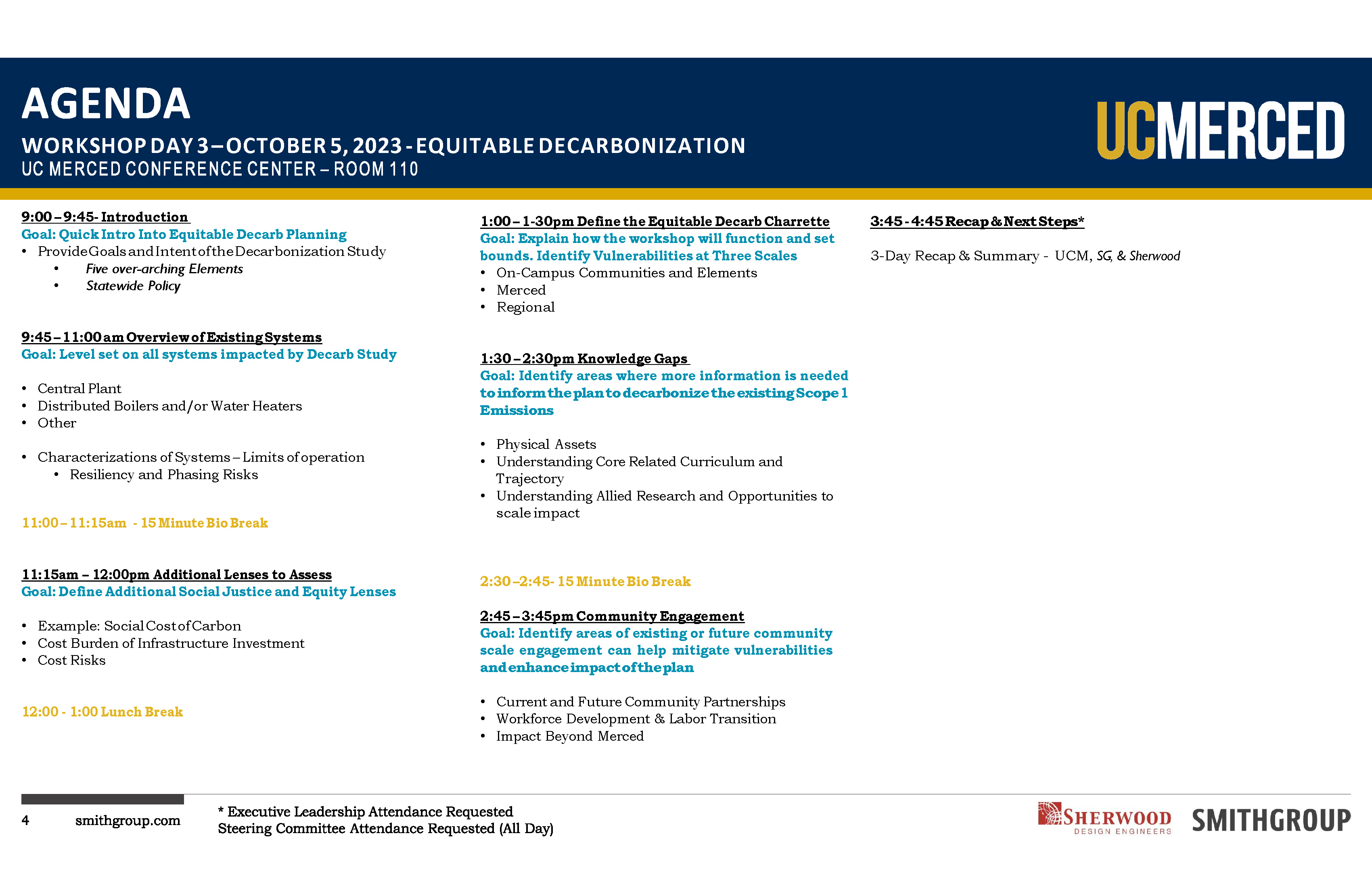Background
Accelerating the path to decarbonizing UC campus energy infrastructure is the largest remaining challenge to achieving the goals of the UC Carbon Neutrality Initiative and net zero greenhouse gas emissions. Decarbonization is a technically challenging and capital-intensive undertaking. UC President Drake convened a Task Force under the UC Global Climate Leadership Council to address this challenge of decarbonization and respond to the Academic Senate Memorial to the Regents on Reducing Fossil Fuels. UC Merced has initiated, under the direction of the GCLC, a committee to manage and oversee a decarbonization study to inform direct emission reductions for campus infrastructure.
Goals:
- Develop recommendations for President Drake and the Chancellor on the necessary steps and timeline to eliminate the use of fossil fuels within the campus energy systems and help strengthen the UC’s current climate action policy goals. The recommendations will include research, education, cost, change management, and student involvement considerations. Although developing these decarbonization recommendations is the proximate aim, accelerating campus actions to eliminate fossil fuels and foster a culture of climate awareness are the ultimate goals.
- Guide the scope, delivery, aggregation, and final packaging to the President and Chancellor of the State-funded decarbonization study.
- Assure fossil free recommendations include ways to overcome key structural, technical, resilience, organizational, financial, operational, land use, cultural, and legal barriers.
- Assure that climate justice and equity are centered in the decarbonization studies and overall fossil free pathway for the campus.
- Frame and communicate the transitional role of carbon offsets in relation to fossil-free goal setting and timeline.
- Develop and implement a communications and engagement strategy that frames the fossil free pathways effort to the entire campus community.
Decarbonization Deliverables:
- Produce a strategy for a 90 percent or greater reduction in scope one emissions from fossil gas use in campus energy systems from 2019 or a later baseline. The strategy will provide decision support for campus leadership to commit to the earliest possible target date for full direct decarbonization and interim targets for the campus central energy system, while maintaining resilience, electrical reliability, and regulatory compliance. Multiple scenarios (reflective of timing, fuel switching, etc.) are encouraged to provide richer decision support to leadership and to allow for flexibility.
- Provide high level estimates of total capital and operational costs and savings, by phase if relevant, in sufficient detail to support funding requests to government and donors as well as inclusion in the campus capital financial plan. Thie analysis will include high level estimates of avoided maintenance, renewal, biogas, carbon offsets, water, and the social cost of carbon.
- Identify climate justice and equity considerations related to the transition of campus energy systems to fossil fuel free and propose solutions or next steps.
- Document knowledge gaps, and subsequent studies and analyses needed to conduct Net-Zero planning that addresses the following.
- Interim reduction targets and dates covering all applicable scope 1, 2, and 3 emissions
- All fossil fuel uses
- A comprehensive institutional boundary
- Climate and environmental justice e. Risk minimization (financial, operational, and reputational)
- Document knowledge gaps, and subsequent analyses and engagement activities needed to conduct climate action and resiliency planning for an academic setting, inclusive of:
- Living laboratory opportunities for research demonstrations, courses, or student projects, or other involvement
- Service activities and scalable, replicable knowledge sharing
- Resiliency within a community context and framed within a climate and environmental justice lens
- See deliverable #3 and the University of California Framework for Incorporating Environmental & Climate Justice into Climate Action
- Biodiversity and habitat protection
UC Merced Equitable Decarbonization Master Plan
Campus Decarbonization Survey Reports:
1. Decarbonization Survey Report 1
2. Decarbonization Survey Report 2
3. Decarbonization Survey Report 2 (Spanish Version)
Governance and Roles Summary:
Executive Sponsor : Physical Operations Planning and Development division.
Project Lead: Tasked with steering execution of study and deliverable goals.
Core Planning Team: An inter-departmental team, supplemented by faculty/interns/graduate students/staff/consultants, will manage the effort. Support team produces and coordinates work toward ensuring the achievement of the study. The members are responsible for consultation with their colleagues and various constituencies.
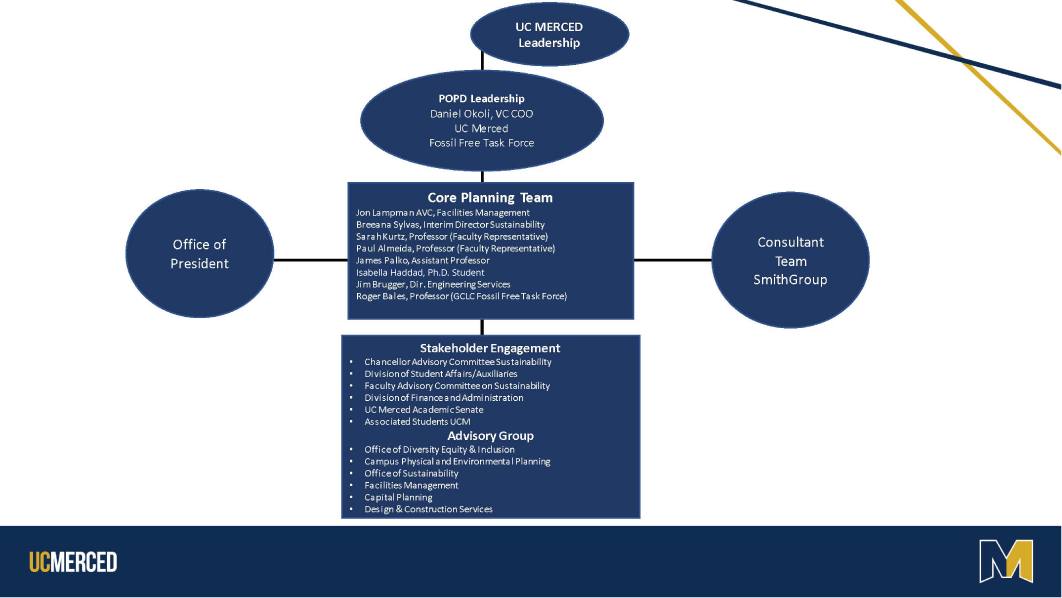
Agenda Session Resources
Below are some additional resources associated with each of the session listed in the agenda above.
Introduction
Overview of Existing System
Additional Lenses to Assess
Define the Equitable Decarb Charette
Community Engagements
Featured Past Events
